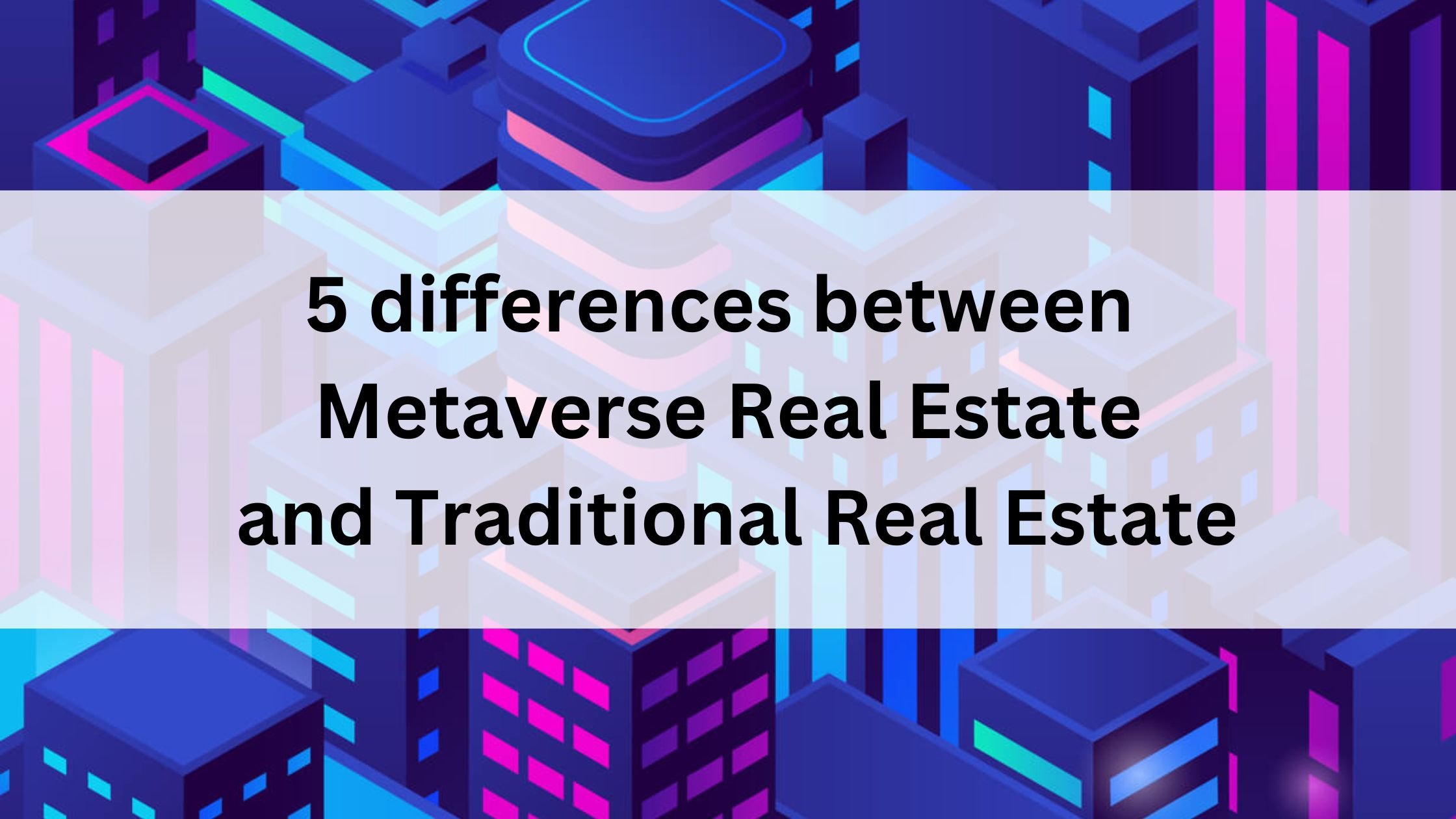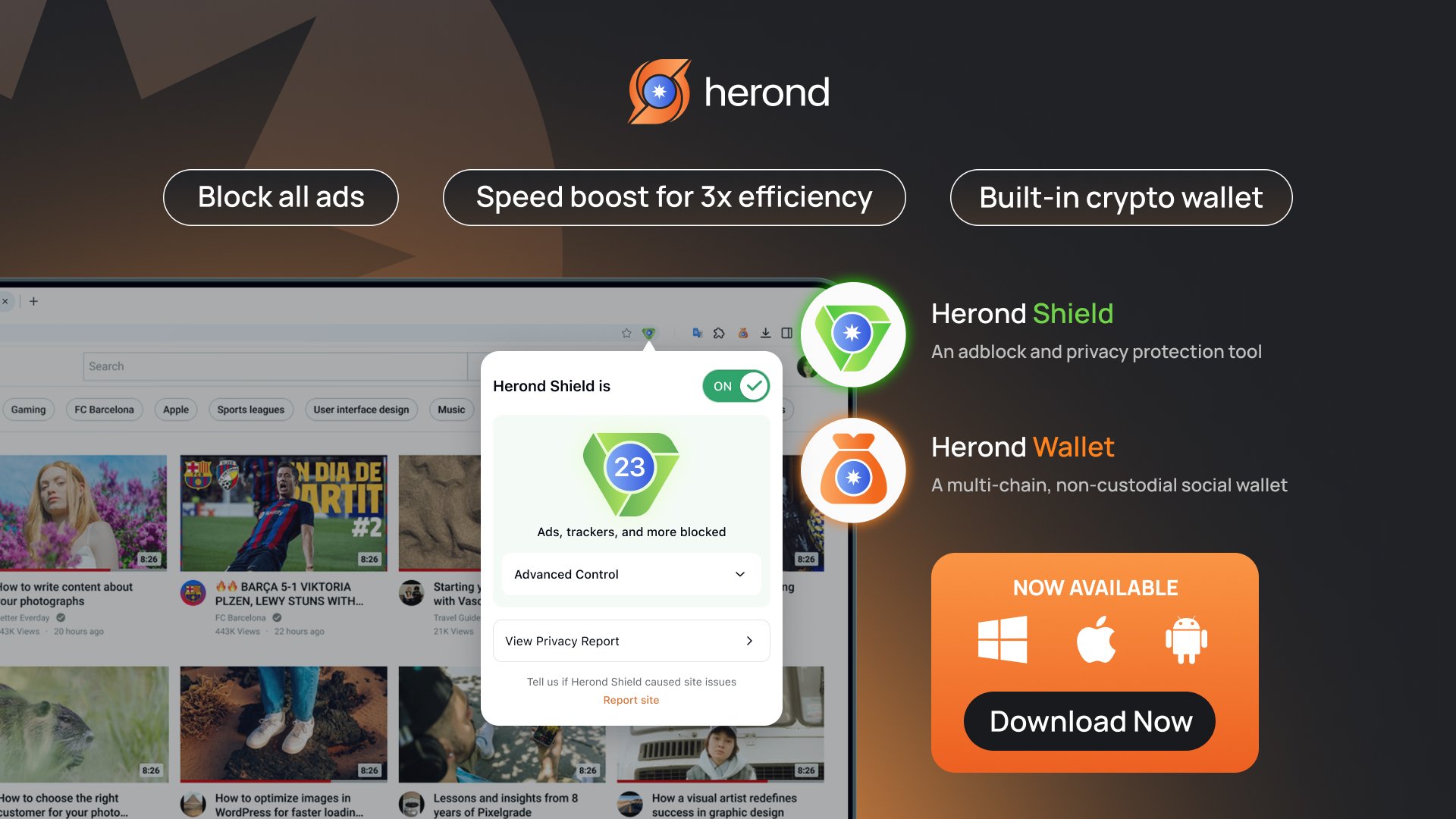Metaverse real estate is here and changing the game. Imagine owning virtual land where you can create anything like stores, offices, or even theme parks – in a limitless digital world. Secured as NFTs on the blockchain, these properties are transparent, secure, and full of potential. Whether you’re an investor or just exploring, let’s dive into how metaverse real estate is shaping the future.
Learn more: Everything You Need to Know About Non-Fungible Tokens (NFTs)
What is Virtual Real Estate?
Virtual real estate is exactly what it sounds like – digital land and properties that exist in the metaverse, a growing network of 3D virtual spaces. Think of it as the online version of real-world real estate, where you can buy, sell, lease, or even build on digital plots of land. These properties can host anything from virtual events and storefronts to galleries, offices, or even homes, creating spaces where people can connect and interact.
What makes virtual real estate unique is that it’s secured on the blockchain, with ownership recorded as NFTs (Non-Fungible Tokens). This means every transaction is transparent, secure, and impossible to tamper with. Just like in the physical world, the value of these properties depends on location, utility, and how much engagement they attract. For example, virtual plots in high-traffic areas of the metaverse are like owning prime real estate on a busy city street.
As more people and businesses embrace the metaverse, virtual real estate is becoming a new frontier for investment and creativity. It’s not just about owning digital land – it’s about reimagining how we use space in a virtual world, with the only limit being your imagination.
Learn more: The rise of NFT art: How digital art is transforming the art world

5 differences between Metaverse Real Estate and Traditional Real Estate
Metaverse real estate is reshaping how we think about property ownership. Unlike physical land, virtual properties exist entirely in a digital world, offering new opportunities and challenges. Here’s a closer look at how metaverse real estate differs from traditional real estate.
Digital vs. Physical Space
Traditional real estate is tangible—it’s land, buildings, and spaces you can physically see and touch. Metaverse real estate, on the other hand, exists in a virtual environment. These digital plots of land are represented as NFTs (Non-Fungible Tokens) on the blockchain, giving them a unique identity and ownership record. While you can’t step on virtual land, it can host everything from virtual concerts to digital storefronts.
Unlimited Creativity
Physical properties are often bound by zoning laws, structural limitations, and geographic constraints. In the metaverse, your imagination sets the boundaries. A small virtual plot can become a sprawling digital park or a towering skyscraper. There are no construction permits to worry about—just the platform’s technological capabilities and your vision.
How Value Is Determined
The value of physical real estate depends on factors like location, infrastructure, and nearby amenities. In the metaverse, value is driven by virtual foot traffic, proximity to popular digital spaces, and platform demand. A virtual plot next to a well-known NFT gallery or popular digital event venue can be worth significantly more than a less trafficked location.
Buying and Selling
Traditional real estate transactions involve lawyers, agents, and mountains of paperwork. In the metaverse, buying or selling property is fast, secure, and transparent. Transactions are handled on the blockchain, often using cryptocurrencies, and ownership is represented by NFTs. There’s no need for middlemen, making the process quick and hassle-free.
Maintenance and Upkeep
Owning physical property comes with ongoing responsibilities like repairs, renovations, and property taxes. Virtual real estate, however, requires digital upkeep, such as updating software, securing against hacks, or improving user experience. It’s generally less costly and time-consuming compared to maintaining a physical property.
Learn more: NFTs for Gamers: A Game-Changer

The future of Metaverse real estate: is it the next big investment?
Mark Zuckerberg, one of the most prominent advocates for the metaverse, stated in 2022:
“The metaverse will not be built by one company. It will be built by creators and developers making new experiences and digital items that are interoperable and unlock a massively larger creative economy than anything we see today.”
This highlights the potential of metaverse real estate as a collaborative ecosystem where virtual spaces will serve as hubs for interaction, commerce, and innovation.
Unlike physical real estate, virtual properties are free from geographic constraints, offering unique ways to host events, build experiences, and engage audiences. However, the technology is still evolving, with challenges like simplifying property transactions and improving user interfaces. Despite these hurdles, the growing interest in web3 and the metaverse indicates strong potential for future growth.
For investors, metaverse real estate offers both opportunities and risks. While early adopters have seen impressive returns, the market remains speculative and heavily reliant on technological advancements. Whether it becomes the “next big thing” or stays niche will depend on how quickly society embraces this digital frontier.

What was the biggest metaverse real estate purchase to date?
The largest metaverse real estate transaction to date took place in May 2022, when Curzio Research acquired 19 commercial properties in TCG World for a staggering $5 million. This record-breaking purchase eclipsed previous high-profile deals, such as Republic Realm’s $4.3 million investment in The Sandbox in November 2021. These monumental transactions underscore the surging interest and value in virtual real estate, as the metaverse increasingly becomes a viable frontier for business and investment opportunities.
Notable Success Stories in Metaverse Real Estate
Beyond these headline-grabbing transactions, several projects have demonstrated the practical utility and profitability of virtual real estate, showcasing the diversity and possibilities within the metaverse:
Decentraland’s Genesis Plaza: A Gateway to the Metaverse
Located at the center of Decentraland, Genesis Plaza is more than just a landmark—it’s a community hub. With interactive exhibits and art installations, this space serves as a welcoming zone for newcomers to the platform. It highlights the potential of creating virtual communal areas that foster engagement, creativity, and exploration in the metaverse.
CryptoVoxels’ Neon District: A Commercial Hotspot
The Neon District in CryptoVoxels is a vibrant, bustling zone filled with galleries, shops, and entertainment hubs. Known for its unique blend of blockchain technology and virtual reality, it attracts significant digital foot traffic, making it one of the most sought-after locations for virtual properties. It’s a testament to how commercial zones can thrive in virtual spaces by offering immersive experiences.
The Sandbox’s Atari Theme Park: Where Gaming Meets Real Estate
A collaboration between The Sandbox and the legendary gaming brand Atari, this virtual theme park redefines entertainment in the metaverse. With virtual roller coasters, arcade zones, and other attractions, it highlights the lucrative potential of partnerships between traditional brands and virtual platforms, drawing both investors and users alike.
Program-Ace’s MetaOffice: Redefining Corporate Collaboration
MetaOffice, developed by Program-Ace, brings a revolutionary approach to corporate workspaces in the metaverse. Designed for both PC and VR users, it supports presentations, collaborations, and even casual relaxation in immersive environments. With advanced features like full-body tracking, facial animations, and the capacity to host up to 32 participants per server, MetaOffice showcases how virtual real estate can transform professional interactions, making them more dynamic and engaging.
Conclusion
Metaverse real estate isn’t just a trend – it’s a digital revolution. While risks exist, the opportunities for creativity, profit, and innovation are endless. As the metaverse grows, owning virtual property could become as valuable as physical land. Ready to explore this new frontier?
About Herond Browser
Herond Browser is a cutting-edge Web 3.0 browser designed to prioritize user privacy and security. By blocking intrusive ads, harmful trackers, and profiling cookies, Herond creates a safer and faster browsing experience while minimizing data consumption.
To enhance user control over their digital presence, Herond offers two essential tools:
- Herond Shield: A robust adblocker and privacy protection suite.
- Herond Wallet: A secure, multi-chain, non-custodial social wallet.
As a pioneering Web 2.5 solution, Herond is paving the way for mass Web 3.0 adoption by providing a seamless transition for users while upholding the core principles of decentralization and user ownership.
Have any questions or suggestions? Contact us:
- On Telegram https://t.me/herond_browser
- DM our official X @HerondBrowser
- Technical support topic on https://community.herond.org








